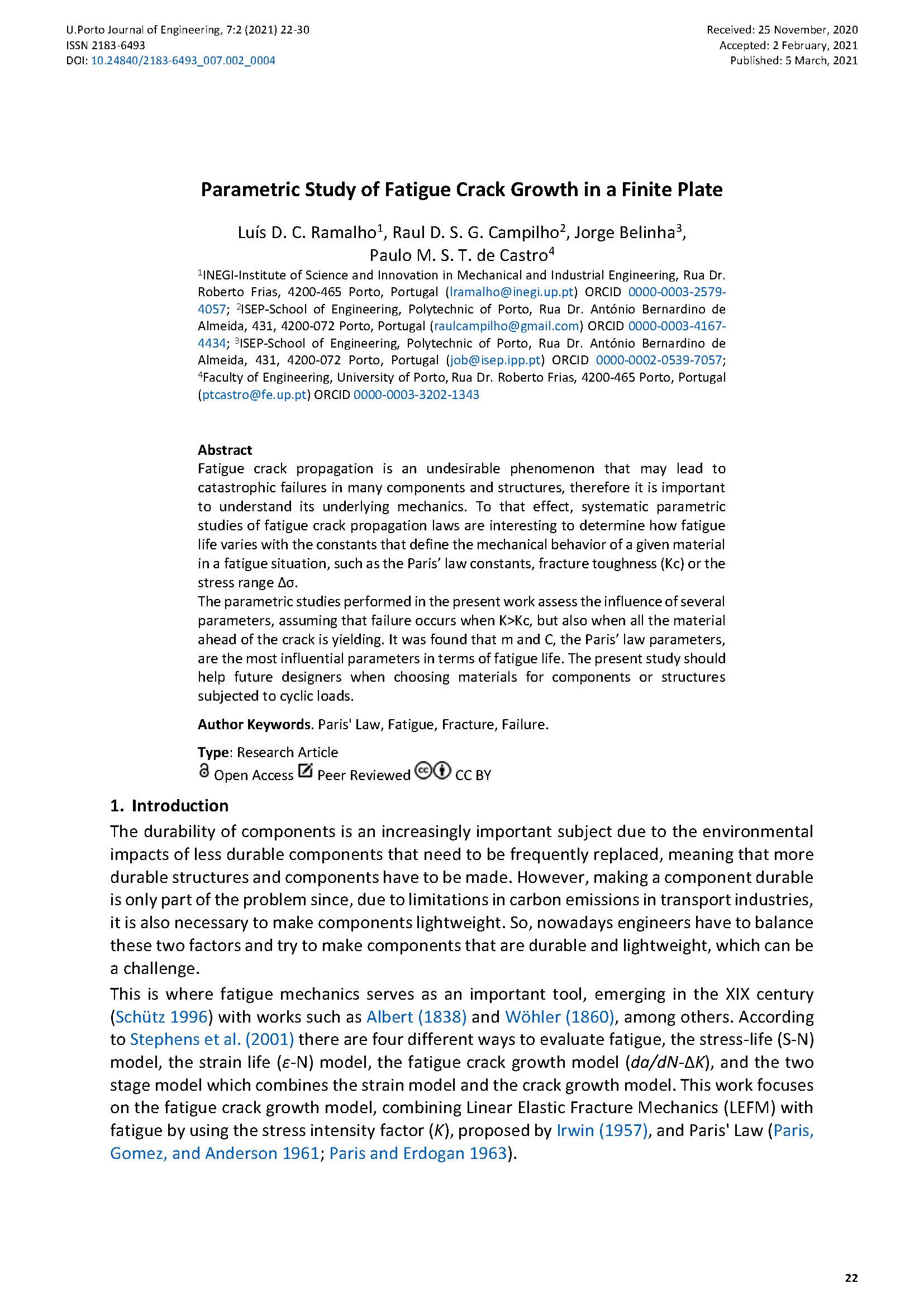Parametric Study of Fatigue Crack Growth in a Finite Plate
Main Article Content
Abstract
Fatigue crack propagation is an undesirable phenomenon that may lead to catastrophic failures in many components and structures, therefore it is important to understand its underlying mechanics. To that effect, systematic parametric studies of fatigue crack propagation laws are interesting to determine how fatigue life varies with the constants that define the mechanical behavior of a given material in a fatigue situation, such as the Paris’ law constants, fracture toughness (Kc) or the stress range ??.
The parametric studies performed in the present work assess the influence of several parameters, assuming that failure occurs when K>Kc, but also when all the material ahead of the crack is yielding. It was found that m and C, the Paris’ law parameters, are the most influential parameters in terms of fatigue life. The present study should help future designers when choosing materials for components or structures subjected to cyclic loads.
Downloads
Article Details

This work is licensed under a Creative Commons Attribution 4.0 International License.
Authors who publish with this journal agree to the following terms:
- Authors retain copyright and grant the journal right of first publication with the work simultaneously licensed under a Creative Commons Attribution License that allows others to share the work with an acknowledgement of the work's authorship and initial publication in this journal.
- Authors grant the journal the rights to provide the article in all forms and media so the article can be used on the latest technology even after publication and ensure its long-term preservation.
- Authors are able to enter into separate, additional contractual arrangements for the non-exclusive distribution of the journal's published version of the work (e.g., post it to an institutional repository or publish it in a book), with an acknowledgement of its initial publication in this journal.
- Authors are permitted and encouraged to post their work online (e.g., in institutional repositories or on their website) prior to and during the submission process, as it can lead to productive exchanges, as well as earlier and greater citation of published work (See The Effect of Open Access).

